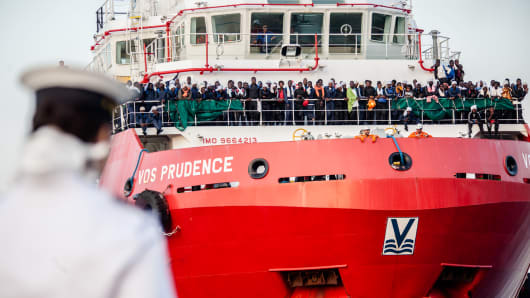European countries failed to agree on a solution to the migration crisis at emergency talks Sunday, leaving the contentious issue firmly on the table for this week’s European Union (EU) summit in Brussels.
Sixteen EU leaders attended what was dubbed as a "mini-summit" on Sunday ahead of a full EU summit of 28 members on Thursday that is going to focus on the bloc's migration policy.
Leaders failed yesterday to come to an agreement over how to confront the migrant crisis together.
While the members present agreed on tighter external borders and extra funding to prevent people from trying to reach Europe, the issue of how to fairly distribute asylum seekers that have arrived remains a sticking point.
The impasse led German Chancellor Angela Merkel to say Sunday that bilateral and trilateral agreements between countries could be necessary if the wider summit on Thursday also fails to find a consensus on how to deal with what she said was a joint responsibility.
“We all agree that we want to reduce illegal migration, that we want to protect our borders and that we are all responsible for all issues,” she said after the talks. “Wherever possible, we want to find European solutions and where this is not possible, we want to bring people together... to develop a common framework for action.”
The EU has seen hundreds of thousands of migrants — including economic migrants, refugees and asylum seekers — enter the bloc in the last few years. In 2015 and 2016 alone, more than 2.5 million people applied for asylum in the EU, according to the European parliament, with many traveling over land and sea via Italy and Greece, or via Turkey and eastern Europe. Many of those arriving have tried to reach more prosperous countries like Germany.

